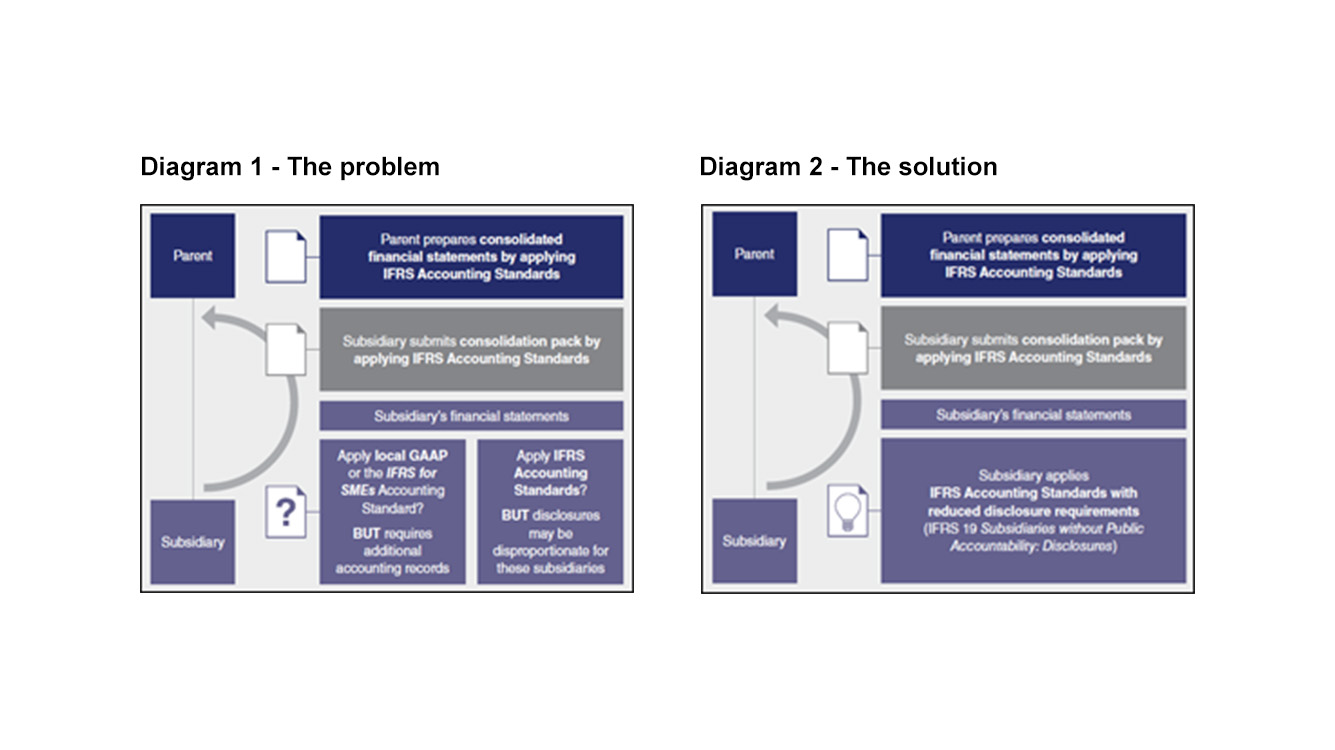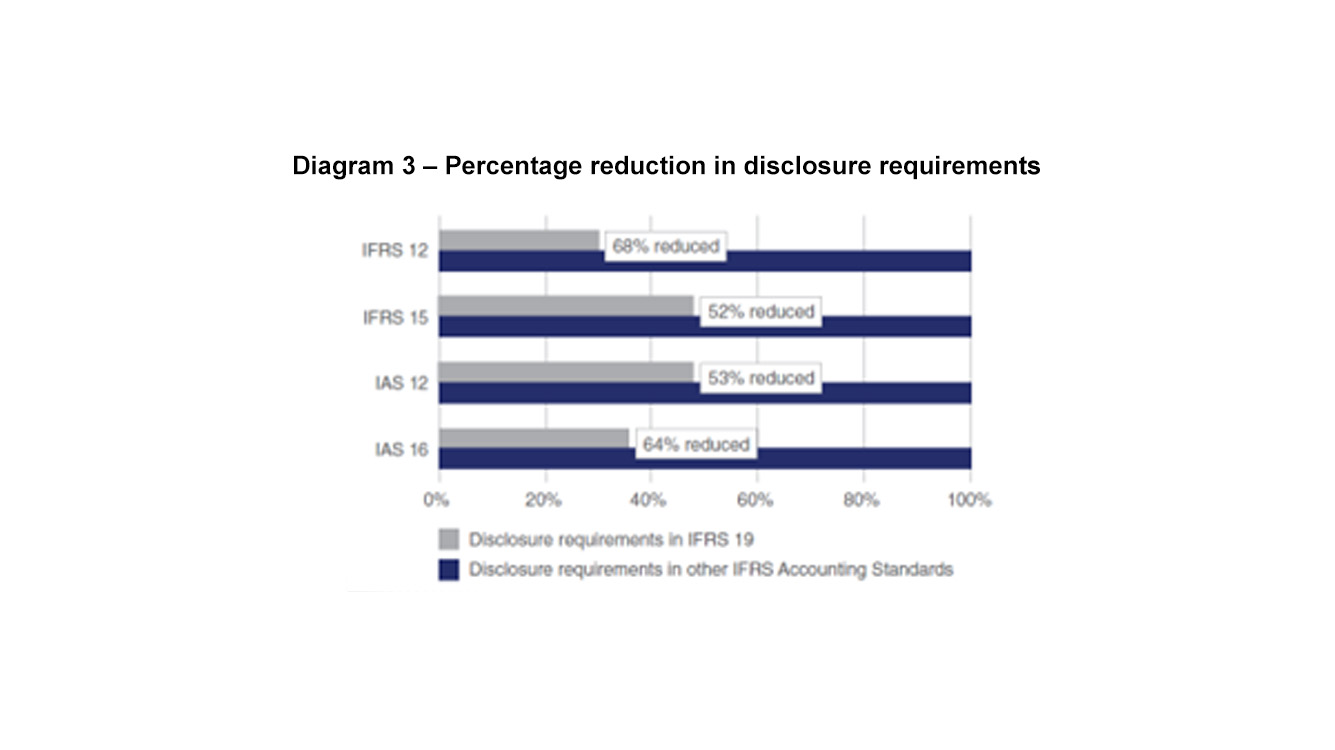IFRS 19 is geared towards subsidiaries that are part of a larger group today (see above) and that have limited stakeholders that don’t necessarily have the same information needs as those of the parent. Stakeholders’ needs may change over time and, given the application of IFRS 19 is voluntary, eligible subsidiaries can freely opt in and out any time, and more than once, based on these changing needs.
Nevertheless, although many subsidiaries that are eligible to apply IFRS 19 will benefit from doing so, there may be situations in which adoption may not be advisable.
First, subsidiaries expecting to undergo transactions that could change the information needs of their stakeholders may want to temporarily pass on implementing IFRS 19 until those future information needs are known. Classic examples are a subsidiary out for disposal or one that is contemplating a future listing, whether in the US or another capital market.
Second, subsidiaries whose financial statements might be included in an SEC filing may want to carefully assess whether IFRS 19 is a good fit because the SEC might not accept IFRS 19’s limited disclosures. In a statement1 on the application of IFRS 19, the SEC staff indicated that although the scope of IFRS 19 is limited to companies that do not have public accountability at the reporting date, there may be situations when financial statements of such companies are to be included in filings with the SEC such as proxy or registration statements to be used by shareholders or (potential) investors to make investment and voting decisions on certain transactions. Examples of such an instance are (1) when the historical financial statements of an operating target company are required to be filed in a cross-border SPAC transaction, and (2) when a foreign private issuer (FPI) files a SEC Form F-4 for the purpose of registering securities in conjunction with an exchange offer related to a merger with a foreign business. The SEC staff indicated that because the purpose of including the foreign business’ financial statements in the SEC filing is to inform investors in making investment and voting decisions, their information needs would be similar to the needs of investors in a company with public accountability and therefore additional disclosure may be needed.
Conversely, applying IFRS 19 might be acceptable to the SEC if the subsidiary’s financial statements are to be filed under Regulation S-X Rule 3-05 (significant acquisition by a registrant) or Regulation S-X Rule 3-09 (significant investment by the registrant). While the SEC statement was not explicit, in these instances, the information needs could be different and a registrant filing foreign investee financial information potentially may be able to avail itself of the benefit of reduced disclosures under IFRS 19. Due to the lack of clarity in these instances, registrants might consider consulting with the SEC staff on the form and content of financial statements2 and the application and interpretation3 of IFRS 19 related to filings with the SEC.







